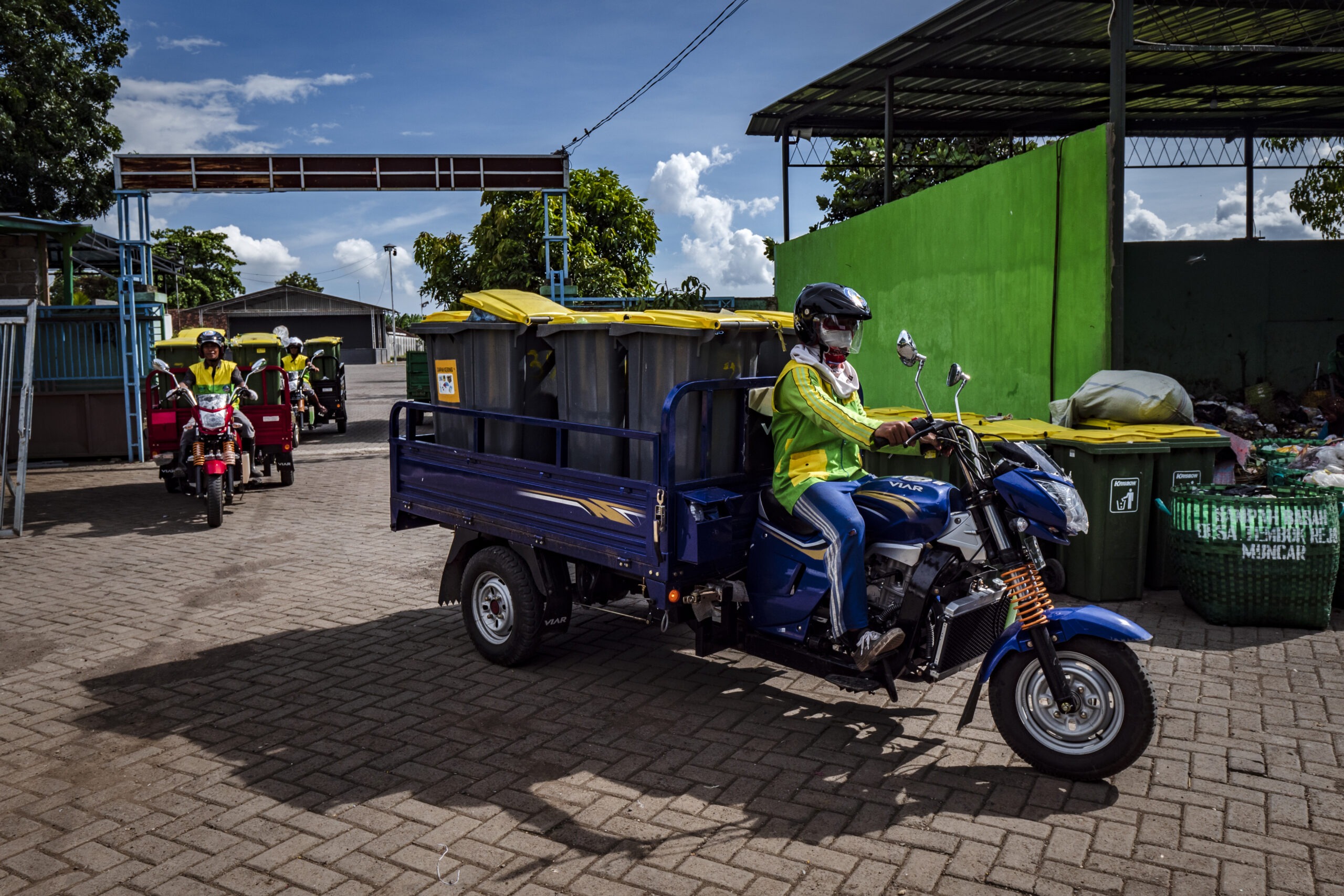The first of the Project STOP city partnerships, created to reduce pollution in Indonesia, is handing over its programme to the city government. The wider project will now roll out to reach up to 2 million people with waste management by 2025.
When Project STOP came to Muncar, on Indonesia’s East Java coast, a change gradually became clear. “Before, down by the river, you could not see the water, it was so full of waste”, remembers Rahmat Hidayat, a leader of one of the city’s villages. He recalls the rubbish piled up, across from his family’s home.
That was 2018, when less than 1 in 10 of Muncar’s households had access to waste collection. Since then, businesses, government and the local community have helped build a programme that collects and processes thousands of tonnes of waste. The dedication of its 100-plus local employees can feel humbling, especially for those of us who take such a service for granted. “To me, cleanliness and health are parts of who I am”, says Sri Wahyuni, from the sorting and processing team. “I’m really proud to be here.”
Four years on, another change is coming. But this time, it’s a measure of success that people in Muncar shouldn’t notice the difference. The city partnership has hit all its financial, governance and technical targets. It’s proof that public-private partnerships can permanently reduce waste and plastics leakage into the environment and oceans. And, from 21 February 2022, Project STOP Muncar will stand alone: managed solely by local government and the community.
”Tackling waste, and in particular plastic waste pollution, is notoriously hard. I am so proud of the dedication, grit and creative problem-solving of our government partners and our team.
Joi DanielsonSYSTEMIQ Partner - SE Asia
“This initiative has been very close to our hearts,” commented Thomas Gangl, CEO of Borealis: his company initiated Project STOP along with SYSTEMIQ. “Being able to hand over to the local government fills us with joy, as it means that all of us got this right. The programme has now ‘grown up’.”
Project STOP Muncar reaches 90,000 people with regular waste collection services. It is recycling and composting waste in its two processing facilities, at a full system cost of $30/tonne. Moreover, the programme has achieved a double-digit profit margin due to high community engagement – more than 90% of households now participate – and waste fee payment coupled with efficient operations. The Project STOP partnership itself has grown since 2018. It has added the cities of Jembrana and Pasuran, as well as new strategic, technical and government partners.
“Tackling waste, and in particular plastic waste pollution, is notoriously hard”, explains Joi Danielson, SYSTEMIQ Partner for SE Asia and the author of Leave No Trace: Vital Lessons from the Frontline of Waste and Ocean Plastic. “Establishing new waste management systems can fail from any one of a thousand fragile points. I am so proud of the unwavering dedication, grit and creative problem-solving of our government partners and our team that led to these impressive results and this incredible milestone. They have provided a successful path for Project STOP Banyuwangi, and hopefully many other city partnerships.”
The regional government has now asked Project STOP to expand operations from Muncar to the whole Banyuwangi Regency. The programme will reach up to 2 million people by 2025, creating over 1,000 full time jobs and collecting 25,000 tonnes of plastic annually. The move has been welcomed by the Coordinating Minister for Maritime Affairs and Investment, Luhut Binsar Pandjaitan, who said: “The government and the private sector must work hand in hand to solve waste management issues, in line with Indonesian government’s target to reduce 70% of marine litter by 2025.”
SYSTEMIQ is a climate and systems change company, with a mission to accelerate the transition to a net-zero, nature-positive and more inclusive economy. We do this by building ambitious multi-stakeholder coalitions; advising leading companies, financial and public institutions; and investing in businesses that will scale new solutions in energy, nature and materials.

